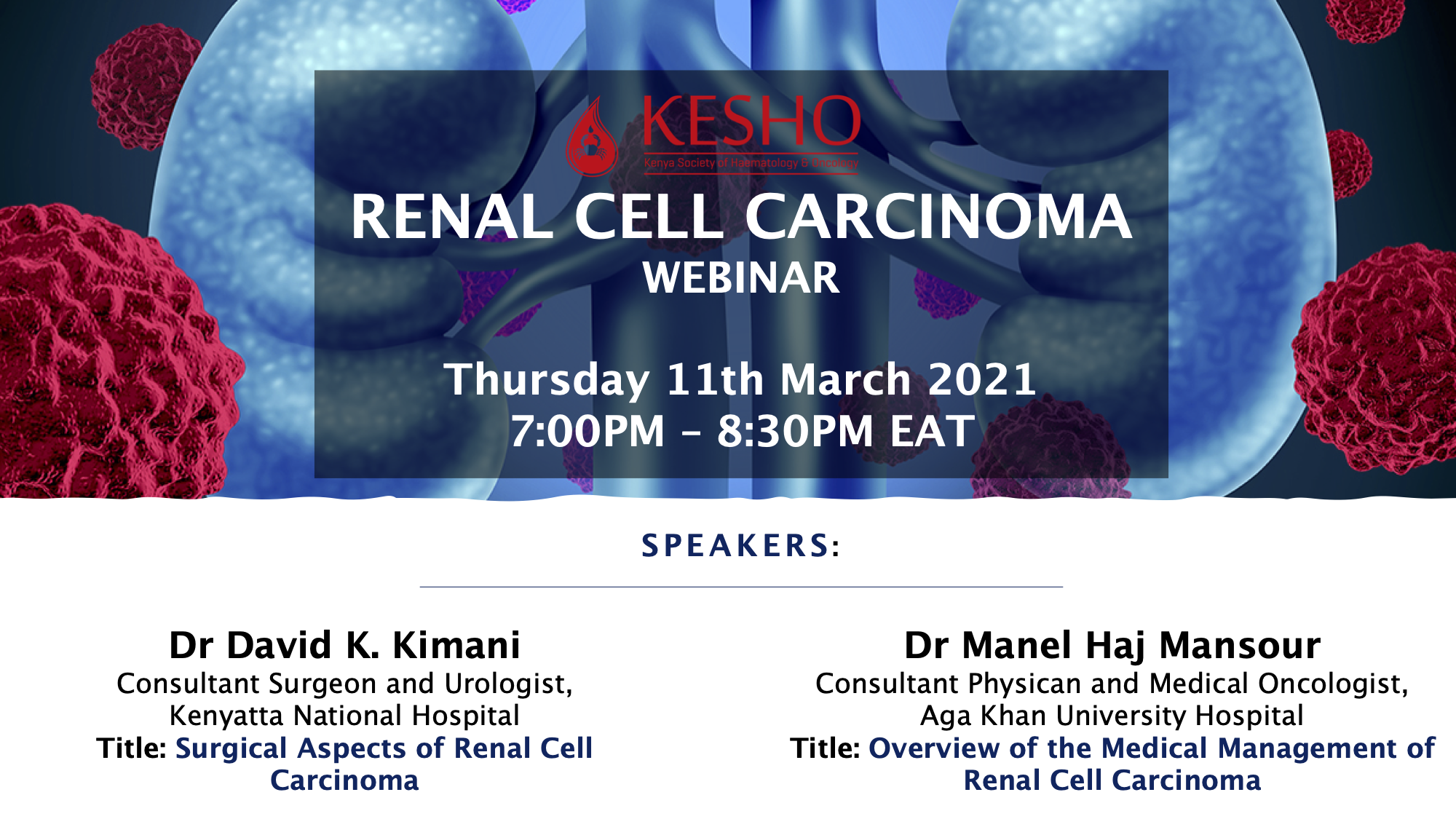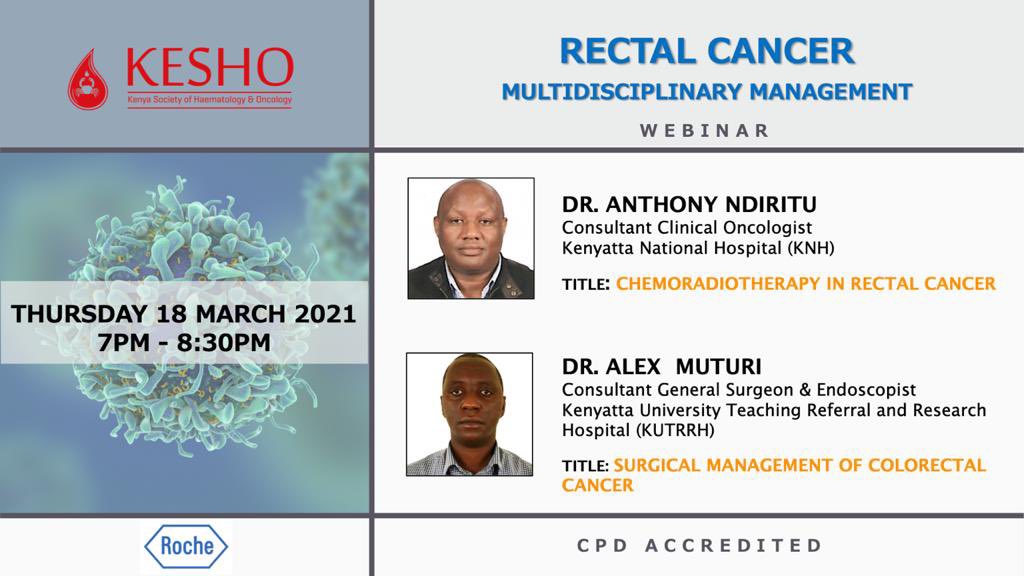
- This event has passed.
Renal Cell Carcinoma
Event Navigation

Moderator: Dr. Caroline Tonio, Consultant Physician, and Medical Oncologist, Muranga County Hospital, Kenya. Sponsor: Roche Presenters:
- Dr. David K. Kimani, Consultant Surgeon, and Urologist, Kenyatta National Hospital
- Dr. Manel Haj Mansour, Consultant Physician, and Medical Oncologist, Aga Khan University Hospital
Kidney cancers account for 5% and 3% of all adult malignancies in men and women. It’s the 7th most common cancer in men and the 10th most common cancer in women. Renal cell carcinomas (RCC) account for 80% of kidney cancers with a median age of 64 years. The risk factors include lifestyle, comorbidities, environmental exposures, and genetic factors. Protective factors include the use of alcohol and coffee. Renal masses are primary or secondary, the majority of which are RCC while a few are transitional cell carcinomas. RCC is mainly asymptomatic, but the advanced disease has a range of symptoms. Mortality rates from RCC have remained stable or have decreased slightly in developed countries, mainly due to timely screening and early diagnosis. The current imaging modalities cannot reliably distinguish benign and malignant tumors or between indolent and aggressive tumor biology. Consequently, renal mass biopsy (RMB) should be considered when a mass is suspected to be hematologic, metastatic, inflammatory, or infectious, as they have a high sensitivity, specificity, and positive predictive value. The non-diagnostic rate of RMB can be reduced by a repeat biopsy. There is no specific molecular marker recommended for clinical prognostic use. Management of small renal masses is by active surveillance, nephron-sparing surgeries, ablative and radical therapies. Partial nephrectomy prioritizes the preservation of renal functions through optimum salvage of nephrons. Priority should be to maintain negative surgical margins and to avoid the possibility of positive surgical margins with a probability of local recurrence. For complex tumors where partial nephrectomy is challenging, radical nephrectomy is recommended. This involves the removal of the entire kidney with or without the adrenal gland and the lymph nodes. To remove the adrenal gland or not depends on findings of metastasis or direct invasion of the adrenal gland. The involvement of the adrenal gland is associated with a poor prognosis. In patients undergoing surgical excision of a renal mass, a minimally invasive approach should be considered when it would not compromise oncologic, functional, and perioperative outcomes. Since RCC is radioresistant, radiotherapy can only be used for palliative treatment. Systemic therapy should be prioritized over cytoreductive nephrectomy for patients with metastatic RCC. First-line treatment is different for the good or intermediate and the poor-risk groups. Currently, there is a paradigm shift to the use of immunotherapy treatment and immune checkpoint inhibitors. However, the high cost of drugs and the fact that the National Hospital Insurance Fund (NHIF) may not cover the entire costs, complicates effective treatment.
Webinar Recording

